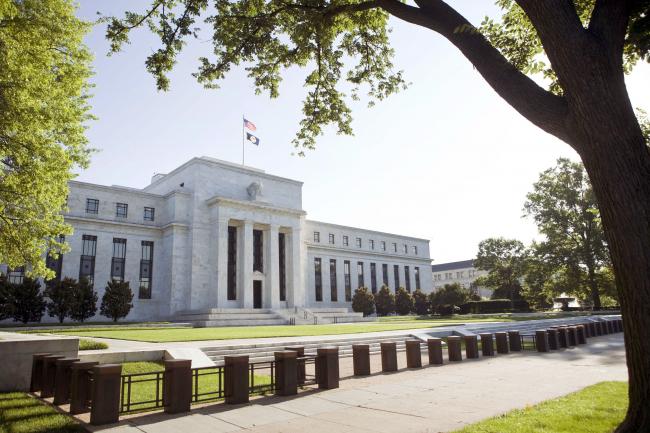(Bloomberg View) -- One big economic risk next year is that things go right.
Wait, what?
The danger is that 2017's synchronized global expansion continues into 2018, and that central banks respond imprudently.
One dominant theme as this year draws to a close is how monetary policy in most of the major economies has oriented in the same direction -- toward phasing out the stimulus that has underpinned asset prices and much else.
Among the Group of Seven, is anyone seriously predicting an increase in stimulus? No. Will monetary policy remain easy and accommodative? Mostly, but less so.
The problem would arise if monetary chieftains decide they have to do more than they indicated they would. In the past week, Deutsche Bank AG (DE:DBKGn) nudged up its forecast for the Federal Reserve, tipping four interest-rate increases in 2018, rather than the three that the Fed itself has flagged. Goldman Sachs Group Inc (NYSE:GS). and JPMorgan Chase & Co (NYSE:JPM). were already there.
Isn't that a sign of strength and resilience? Yes, but investors have become so spoon-fed on forward guidance that they lose the ability to sometimes think for themselves. (Witness a little spat in Canada.) If the Fed gets more aggressive than it has signaled, and economists feel they have to keep upgrading -- rather than downgrading -- investors may start questioning some assumptions.
Let's look at the U.S. All the focus on disappointments -- with gross domestic product clocking a bit more than 2 percent growth year after year -- tend to obscure one constant: The unemployment rate relentlessly grinds lower. Fed officials have pretty consistently underestimated how low the unemployment rate would go.
What if the jobless rate heads toward 3.5 percent next year? Does inflation then begin firing? If it doesn't, do Fed officials hold to their faith that inflation and wages will likely start behaving when the jobless rate dips even lower?
Lest we think an inflation uptick -- "breakout" seems a tad dramatic -- would be just a U.S. issue, let's take a look at the world's other big economic engine. China's producer prices began rising late last year and have been one of the great untold stories in the global reflation. (The West's reflation may very well not have been about Donald Trump at all.)
Prior to that, factory prices had declined for four years. That little boomlet in Chinese PPI was supposed to have dissipated quickly. It hasn't. Prices rose 6.9 percent in October from a year ago, beating consensus of 6.6 percent. Is that flowing through into consumer prices?
The case is ambiguous; CPI was up 1.9 percent from a year earlier. Still modest, but a touch higher than many economists had estimated. This isn't spectacular stuff. Still, it was dismissed as a short-term boost that would run out of puff. It hasn't.
Continuing global growth need not be catastrophic. And higher interest rates are hardly the number one cause for worry. But it's worth considering that in 2018, central banks may see a case for higher rates that they did not forecast back in 2017.
This column does not necessarily reflect the opinion of the editorial board or Bloomberg LP and its owners.
Daniel Moss writes and edits articles on economics for Bloomberg View. Previously he was executive editor of Bloomberg News for global economics, and has led teams in Asia, Europe and North America.
